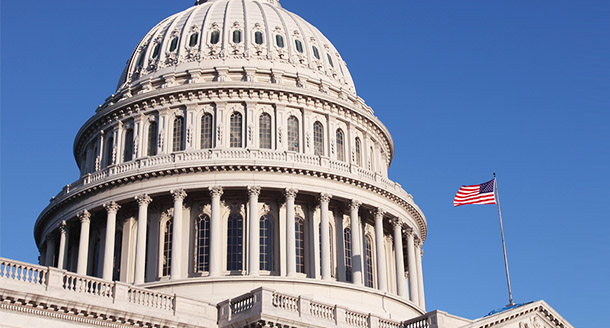National Brain Tumor Society, the largest nonprofit dedicated to the brain tumor community in the United States, today held their annual “Head to the Hill” advocacy day in Washington, D.C. The event drew hundreds of brain tumor advocates from across the country to the nation’s capital to educate their respective congressional delegations on the critical issues currently facing the brain tumor community.
“Head to the Hill provides the National Brain Tumor Society and our supporters a tremendous platform to engage policy makers in a conversation about the impact decisions in Washington have on this very vulnerable population,” said N. Paul TonThat, Executive Director, National Brain Tumor Society. “As an organization that seeks to accelerate the discovery of new treatments, and ultimately a cure, for brain tumors, public policy advocacy plays a crucial role in our integrated program agenda.”
Brain tumors are a serious, life-threating illness that can strike anyone at any time. Yet treatment options remain limited, advancements toward new therapies are underfunded, and the recent sequestration cuts to government-funded research threatens to further undermine the fight against this life-threatening tumor. To make matters worse, the standard chemotherapy for brain tumor patients is often not covered equitably by insurance plans because it comes in a pill form.
Thus, the message delivered to Congress from the brain tumor advocates on the Hill this afternoon was two-fold: Invest in the National Institutes of Health (NIH) and support the Cancer Drug Coverage Parity Act (HR 1801) recently introduced in the House of Representatives by Congressman Brian Higgins and a bipartisan group of co-sponsors.
Cuts to NIH – the largest funder of brain tumor research in the United States, through the National Cancer Institute – due to sequestration couldn’t come at a worse time for the brain tumor community, which has only seen four (4) FDA-approved treatments in the past three decades.
Recent government-funded projects like The Cancer Genome Atlas (TCGA) have produced significant scientific discoveries in brain tumor research. However, additional investment – on the scale that only the government can provide – in basic science is still needed to develop potential new therapeutics for the patient community.
However, the deep cuts to NIH triggered through sequestration, are expected to result in funding reductions for critical brain tumor research. National Brain Tumor Society and its advocates told their representatives today that it is critical for the federal government to increase NIH funding, so that it may keep pace with the needs of biomedical research.
Temodar (temozolomide) is the standard of care for all brain tumor patients whose treatment includes chemotherapy. Temodar is almost exclusively administered orally, and for this reason health insurance companies often treat it differently. Oral chemotherapy agents are often covered as prescription drugs, rather than a medical benefit, such as traditional intravenous chemotherapy. The result is that patients are often subjected to onerous monthly co-pays in order to access the only chemotherapy available to treat their brain tumor.
Thus, the National Brain Tumor Society supported the reintroduction of [HR 1801] the Cancer Drug Coverage Parity Act. The bill will prohibit health insurance plans from charging patients more to access oral chemotherapy drugs, including Temodar, than they would for traditional IV chemotherapy. National Brain Tumor Society played a crucial role in crafting the newest version of the bill, and is now mobilizing brain tumor patients and families across the country to urge Congress to support the legislation.
More than 688,000 Americans are currently living with a primary brain tumor, and an estimated 14,000 people will die because of a primary malignant brain tumor this year. Brain tumors are the second leading cause of cancer-related death in children under age 20, and third leading among young adults age 20-39. Only one out of three adults diagnosed with a malignant brain tumor today will be alive in five years. More so than any other cancer, a brain tumor can have life-altering psychological, cognitive, behavioral, and physical effects. There are no known prevention methods and there is no cure.



